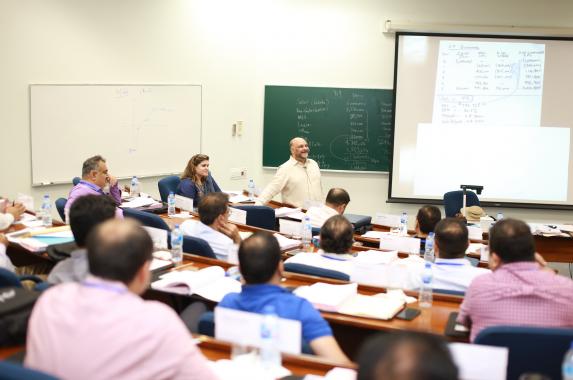
The Rausing Executive Development Centre (REDC) successfully conducted the summer offering of the Finance for Non-Financial Managers (FNFM) course from August 20-24, 2019. The programme enables executives to become finance fluent and accurately read, interpret and use financial data for strategic decision-making.
The programme was conducted over a period of five days and was attended by a diverse group of senior managers and industry leaders. The participants hailed from a myriad of different professional backgrounds and industries including agriculture, financial institutions, FMCG, advertising, media, retail, education, power generation, public institutions, telecom, engineering and manufacturing.
Using a blend of real-life case studies, lectures, exercises and worked examples, the sessions focused on equipping mid-career executives with the cognizance to understand the financial implications of their managerial decisions.
The FNFM programme is recognised for its effectiveness in broadening functional perspectives towards a comprehensive and macro understanding of financial value drivers of a typical business.
Participants appreciated the programme, and expressed their satisfaction. Hassan Imran, an employee at Pakistan Oxygen Limited, said, “It is an excellently designed programme for non-financial professionals to understand the importance of decision-making based on numbers and their workability in the form of profits and returns.”
This programme was spearheaded by Syed Mubashir Ali, Asad A. Alam and Syed Aun Rizvi, faculty members at the Suleman Dawood School of Business, LUMS. They are experts in real issues confronting executives and businesses today and provide an intense, yet comprehensive learning experience for participants.
Muhammad Mueed Khan, from Sindh Engro Coal Mining Company also noted, “This course introduced me to the world of finance. Now I may find it easy to quantify and calculate economical value of different investments, business expansion and new ventures without any qualitative explanation.”








